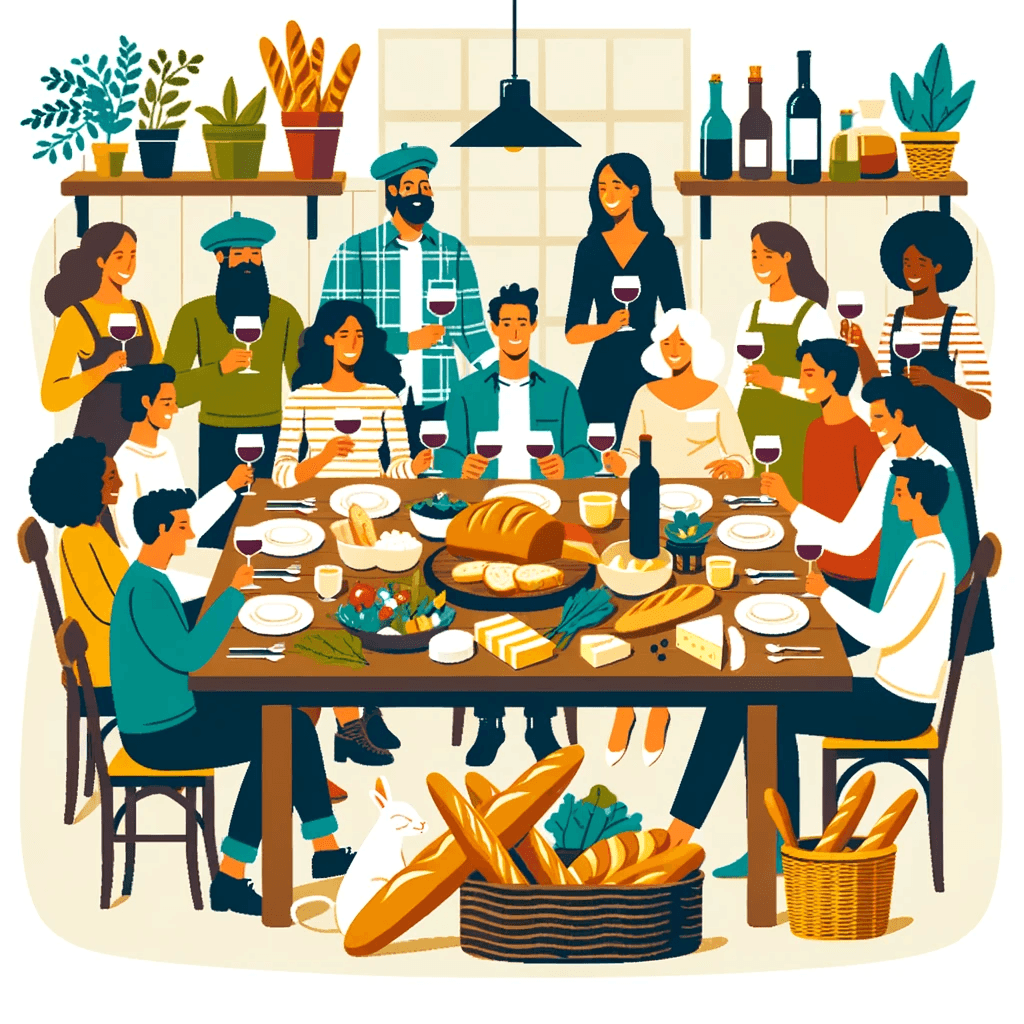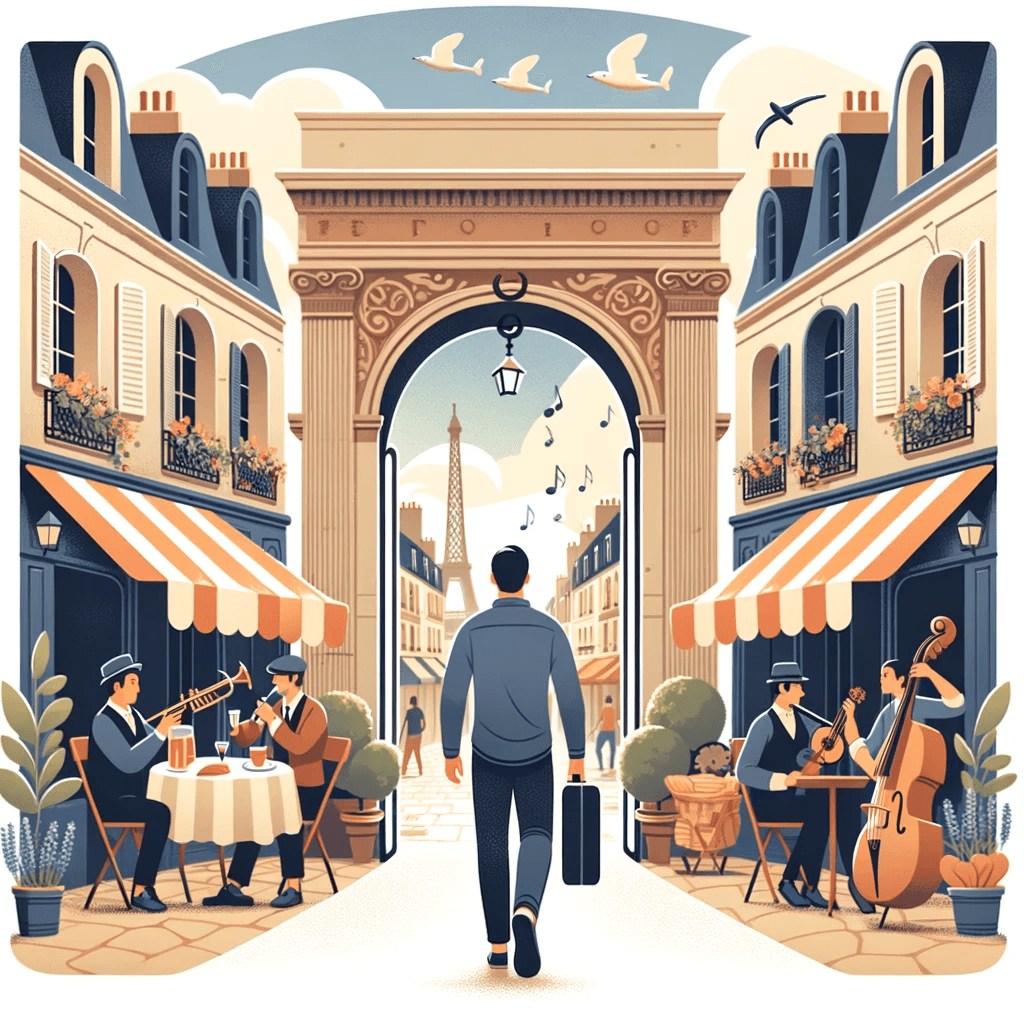French Traditional Festivals: Unique Celebrations and Customs

October 16, 2023
10/16/2023
Discover French traditional festivals, highlights of the year where customs and traditions blend to offer unique celebrations. In this article, we will take you through the most important French festivals, introducing you to the rituals, activities, and symbols associated with each event. From Bastille Day to Christmas, including Candlemas and the Music Festival, get ready to dive into French culture.
Bastille Day, July 14th
French National Day, celebrated on July 14th, is a historical and symbolic event. It commemorates the storming of the Bastille in 1789, which marked the beginning of the French Revolution. This day is marked by a number of important symbols such as the military parade on the Champs-Élysées and the fireworks that illuminate the Parisian sky. National Day is an opportunity for the French to come together and celebrate their country with pride and patriotism.
Historical and symbolic origins of the celebration
French National Day was established in 1880 to celebrate unity and the Republic. But its origins date back to the French Revolution, which overthrew the monarchy in France. The storming of the Bastille, a symbol of royal oppression, became a symbol of freedom and emancipation. Today, July 14th is a public holiday in France and is celebrated with pride and joy throughout the country.
Activities and popular traditions
July 14th is also known for its festive and popular activities. The French gather to watch military parades, where the French armed forces showcase their skills. Popular balls are also a must during National Day, with outdoor dances and concerts. The fireworks are the highlight of the night, illuminating the sky with magnificent colors and shapes. This day is an opportunity for the French to show their patriotism and celebrate their country together.
La chandeleur, a delicious feast
"La chandeleur" is a traditional festival celebrated on February 2nd in France. This f,estival has religious origins and is associated with the presentation of Jesus at the temple. Today, "la Chandeleur" is mostly known for its culinary tradition, crêpes! This delicious feast is highly appreciated in France and allows families and friends to gather around a friendly meal.
Religious origins
"La chandeleur" takes its name from the religious feast of the Presentation of Christ in the Temple, also known as Candlemas. This feast marks the end of the Virgin Mary's 40-day purification after the birth of Jesus. This tradition dates back to the 4th century and was adopted in France during the Middle Ages. Today, Candlemas has become a popular festival where pancakes are prepared and enjoyed with family and friends.
Associated culinary traditions
"La chandeleur" is above all a delicious feast, synonymous with delicious pancakes and culinary traditions. The French love to prepare and savor sweet or savory pancakes on this day. One of the most popular rituals is to flip the pancakes with a coin in hand, hoping for a prosperous year. Pancakes are often accompanied by jam, sugar, chocolate, or fruit. This festival is an opportunity to indulge and enjoy a friendly moment with family and friends.
Christmas, an enchanted celebration
Christmas is one of the most important festivals in France. It is a Christian celebration that commemorates the birth of Jesus. But Christmas is also an opportunity to gather with family, decorate homes, and share unique traditions.
Religious customs and symbols of Christmas
Christmas is above all a religious celebration. The nativity scene is an important symbol of Christmas in France, representing the scene of Jesus' birth. The French decorate their homes with Christmas trees, garlands, and ornaments. Santa Claus, too, is very present in French tradition, bringing gifts to well-behaved children on Christmas Eve.
Family rituals and traditions
Christmas ,Eve is an important moment in France, where families gather to share a festive meal called le Réveillon. It is an opportunity to enjoy traditional dishes such as roasted turkey with chestnuts, oysters, foie gras, and the Yule log cake. After the meal, gifts are exchanged around the Christmas tree. Midnight Mass is also very popular, where the faithful gather in churches to celebrate the birth of Jesus. Each region of France has its own Christmas traditions, making this celebration even richer and more varied.
La fête de la musique, an artistic celebration

La fête de la musique is an artistic celebration that takes place on June 21st, the day of the summer solstice in France. It was created in 1982 by the French Ministry of Culture with the aim of promoting music and allowing everyone to express themselves freely through this art.
The origins of the Music Festival
La fête de la musique was inspired by the idea of French writer and musician Jack Lang, who was then Minister of Culture. He wanted to create a popular event where music would be honored in the streets, parks, squares, and cafes. Since its creation, the Music Festival has become an essential meeting for amateur and professional musicians, offering free performances accessible to all.
Events and musical performances
The Music Festival is marked by numerous events and musical performances throughout France. Outdoor concerts are organized in the streets and squares, showcasing the musical diversity of the country. Musical animations are also very popular, with groups and artists from all backgrounds performing in public places. Every year, the Music Festival brings together thousands of people who come to enjoy music and the festive atmosphere that prevails throughout the country.
Conclusion
France is rich in traditions and unique festivals. From National Day to the Music Festival, including Candlemas and Christmas, each event offe,rs an opportunity to celebrate French culture and values. By participating in these traditional celebrations, you will discover an essential aspect of life in France and immerse yourself in a festive atmosphere steeped in history and conviviality.
The diversity of traditions and festivities in France makes each event unique, offering French people and visitors an unforgettable cultural experience. Don't miss the opportunity to participate in these authentic celebrations during your trip to France or in your French language learning!

Subscribe to our newsletter
Latest posts
Browse all posts
Subscribe to our newsletter
Stay informed and get a free video

